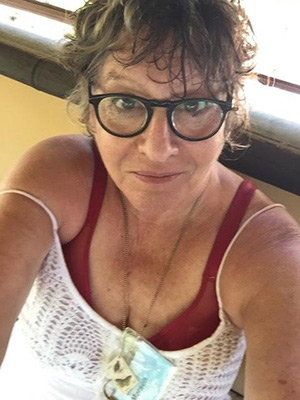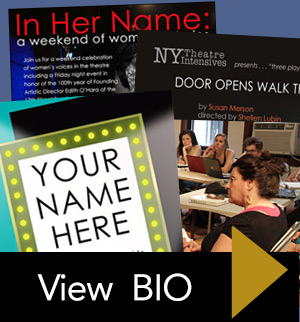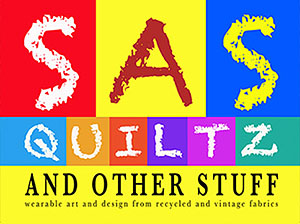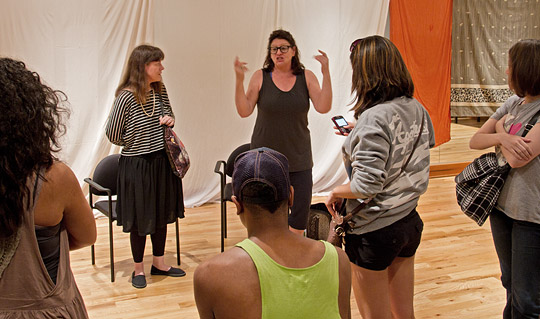Susan Merson |
Actor, Writer, Producer, Educator |
Contact: |

| Check Facebook for updates on Workshop and Performance schedules |
PERSONAL TEACHING HISTORY I am an artist. I came into the world to be just that. For many years I worked on how to do that. How do I become realized as an artist? How do things get clear enough so that the channel is open to receive and transmit the clarity that will go into a performance or a piece of fiction or a play? I have spent many years on this road and it still compels me. The road has many twists and turns and presents many opportunities. For many years I heard the mocking phrase thrown into the potholes of the road: ”Those who can, do. Those who can’t, teach.” I ran from those words for many years until my wisdom began to
overcome my fear and my years became a blessing not a curse. I realized
that I had become a teacher as naturally as I had grown into my
own skin. I add this to the list of things that I have come here
to do. Act, write, channel, love, teach. The first phase of my teaching was from 1977-87 when I was on the roster of the Affiliate Artists program out of New York City. This national arts service organization placed performing artists of all stripes into communities across the country to perform, hold workshops and develop a consciousness about the arts and arts programming. At this point I still identified myself very much as an actress/solo performer. I held no workshops. I had no formulated knowledge to share. Instead, I performed. I chose material that reflected the needs of the communities I visited. I pointed out the truth in community theatre productions when asked for response and listened to the dreams of younger people still struggling to admit their vocation. I also began to realize that just by being in residence, by being present and aware, I was indeed planting seeds that might grow in my audiences. I realized that the performance of my first solo piece, REFLECTIONS OF A CHINA DOLL, gave people a way into themselves and a foothold on their own climb toward their self-realization. I saw people changed by my work and was humbled by the power. This was the time of: “You watch. I do. Now, you go away and figure it out on your own. My work is mine. You can’t have it.” My ego was still in the lead, though I would have said I just didn’t have the patience to stop my own process and to look at it so that I could share it. I returned to New York and my life as an actress and became involved
in the very fertile “new plays and playwrights” arena
of the late 1970’s. There was a great deal of government money
at that time to begin to develop new plays. I began to work at New
Dramatists as an actress. Developing characters with new writers,
I began to understand the difference in approach between an actress
and writer and how each can help the other. The difference is: I began to internalize the structure of a play and gained a visceral and physical understanding of the rhythms of playwriting. About this time (1978), my first solo plays, REFLECTIONS OF A CHINA DOLL, was produced at the Ensemble Studio Theatre. Most early plays are shamelessly autobiographical and my solo piece was no exception. All work is autobiographical on some level throughout one’s writing career, but in the early years, we have no choice but to tell our own story unmasked. It is a good first step for writers because it gets them hooked into those things about which they are passionate. With the success of the New York production of CHINA DOLL, I was approached by the National Foundation for Jewish Culture to help them launch a Jewish Theatre Initiative across the country. The NFJC felt that it was important that the mainstream theatre reflect the contemporary experience of Jews in America. We needed to shift from the focus on the Holocaust material, the sentimental Yiddishkeit and negative stereotypes, and begin to reflect the ideas and thoughts of the Post War generation. This was the first time that I was being asked to step back and look at my cultural heritage and my artistic mission as one and the same. I was also being asked to not only perform, but to analyze the elements of my work and offer these elements to other mainstream writers to encourage them to venture into their own backgrounds without fear of exclusion. This meant that my job was to encourage playwrights to find their own passion, their “heat”, even if it lay in a part of themselves that was considered less cool than the sex, drugs and rock and roll of the time. Many writers we contacted and tried to work with in these years fought hard against the possibility that their true biography would have relevance in a larger world. Jews wanted to be identified as writers, not as Jewish writers. I remember a letter received from Woody Allen damning the whole notion of identifying his work as Jewish. It was fascinating to see the acceptance and rejection of heritage as a tool towards getting to the truth of a writer’s work. This is a much longer discussion but for the purposes of this teaching history, suffice it to say that the years at NFJC helped me to help others tell the truth about where their true identities and passions reside. So, the shift from pure ego and self-involvement was made to include an intellectual, observational component. Here I learned how to tap writer’s instincts while allowing them their own definition of self. With the Reagan era came a massive reduction in funding for not-for- profit organizations. This meant the theatre work that I had been involved in no longer was available to me. New York was going through a tough time and I had to move. In relocating to Los Angeles, I hoped to jumpstart my acting career but instead, I found first that my teaching skills became the most important element of the move. I had been a member in New York City of the New York Writers Bloc. Started by playwright Jeffrey Sweet, the NY Bloc was one of the first workshops to offer safe haven for and with a group of peers. There was no teacher. There were few set rules. There were colleagues offering support and wisdom, facilitating growth. This NY group included Jerry Stiller and Anna Meara, Donald Margulies (Pulitzer Prize+), Jane Anderson (Emmy+), Jeffrey Sweet (OBIE+), Winnie Holtzman among others. With the change in the economy, we all began to wend our way west and in l985, Jane, Tony Shultz and I decided to create the West coast version of the Bloc in Los Angeles. Meeting for over 15 years, the Bloc gave rise to Jane’s career, along with most of the writers who wrote the Disney films throughout the 1990’s, as well as fiction stand outs like Janet Fitch (WHITE OLEANDERS). Countless other playwrights, fiction and film writers went through the group and the process over the years. Meeting privately in Jane’s home for the first five years and in my home for the balance of the time, the Bloc provided intelligent and compassionate support for writers moving into their strength. The rules of the Bloc were simple: We had the luxury of time, talent and compassion on our side. I still find these basic guidelines the most helpful in working with writers. We did no set exercises on craft in the Bloc but every week each member was obligated to write a SIX LINES exercise. Jeff Sweet had come up with this simple plan. Everyone, he felt, was capable of writing at least six lines of dialogue. So, every week we would choose a topic and every week everyone would bring in no more than two pages double-spaced on the topic. From these simple exercises emerged major motion pictures and several works of published fiction. Six Lines gave a writer permission to write no holds barred. No criticism, no negatives. Just write and it will be heard. The Bloc was not a class, per se, but it taught more people to write than any form and function class I have attended over the years. It was training by example, it was private and personal and there was no commercial goal (necessarily) attached to the end product. No money changed hands. Much knowledge and support did. I still conduct most of my classes with this model in mind. If needed, I will pause and focus on a particular element of work, -- conflict, intensity, language, monologue—but I find that most often when the elements of an organic whole are broken down and then taught as building blocks, the whole loses its power to translate into a finished work. For a technique class, the situation is different. Then, exercises may be helpful, but if the writer has no passion he/she is aiming at, why write in the first place? I prefer having the student jump in and swallow the process whole if the aim is to write a finished work. It is more challenging to the student and teacher but in the end I believe it produces the most connected and passionate result. During most of my time as moderator of the Bloc, I was a colleague and not an instructor. This role began to shift in the last few years of the Bloc as younger and less experienced writers began to join the group. At this time I stepped away as I was still uncomfortable being anyone’s teacher. I was fearful of becoming too dogmatic about my work and others. I was there to witness technique in the making but the members who were showing up no longer had the techniques available to them, nor was it there by example and I wasn’t about to teach it. Then, motherhood struck. This most glorious and humbling of experiences gave me the joy of letting my own stuff go and the understanding of the role of being a guide in life and art. All of a sudden, I was eager to guide rather than preach, to suggest rather than mandate. I realized that I had a wealth of information but I also had the wisdom to keep it to myself, understanding that those who need to learn will learn. I had the freedom to know I needn’t feel the compulsion to force-feed anyone or anything. If they’re hungry they will eat. If they are cold, they will come close. This was the ultimate freedom as artist and teacher. Now, my philosophy
is to act as Guide and Stumble Buffer. I guide and hopefully the
student discovers. I remind myself always to: There is a debate within the academic theatre playwriting community between the narrative style and the structural style. Briefly, the narrative style is what I described previously. It encourages the writer to get everything out on paper and then shape it, leaving censorship aside for the first or second drafts. The more structured approach asks that a writer determine his/her parameters before they hang dialogue on their ideas. Though this second approach is extremely important in the more complex screenplay form, I feel it stultifies the playwright to write to an outline. The great joy of the theatrical form is that it is structurally simple. There is a conflict, there is a turn and there is a resolution. Easy and compact. How these points are developed is not as important as what is they say when they finally get there. I usually explain the difference between playwriting and screenwriting as the difference between a road trip (film) and an in depth stay at a retreat (play). This may be simplistic but it is helpful in getting the students to realize the intimacy and depth of the form. WHY TEACH THEATRE? With the commercial theatre offering little sustenance artistically or economically, the question arises: Why study theatre? What possible use can it be ?It needs to be said that the study of theatre is the study of life and behavior. As we learn to more closely examine our own actions and reactions and observe the world around us, we become more aware of the world and our place within it.Every time we write dialogue or improv the physicality of a human being, we place ourselves in the stream of life and become more able to act and react as global citizens.We study theatre to study ourselves. We learn to channel the energy around us and at the same time learn to focus our own direction. We observe the world and become a more responsive part of it. |



